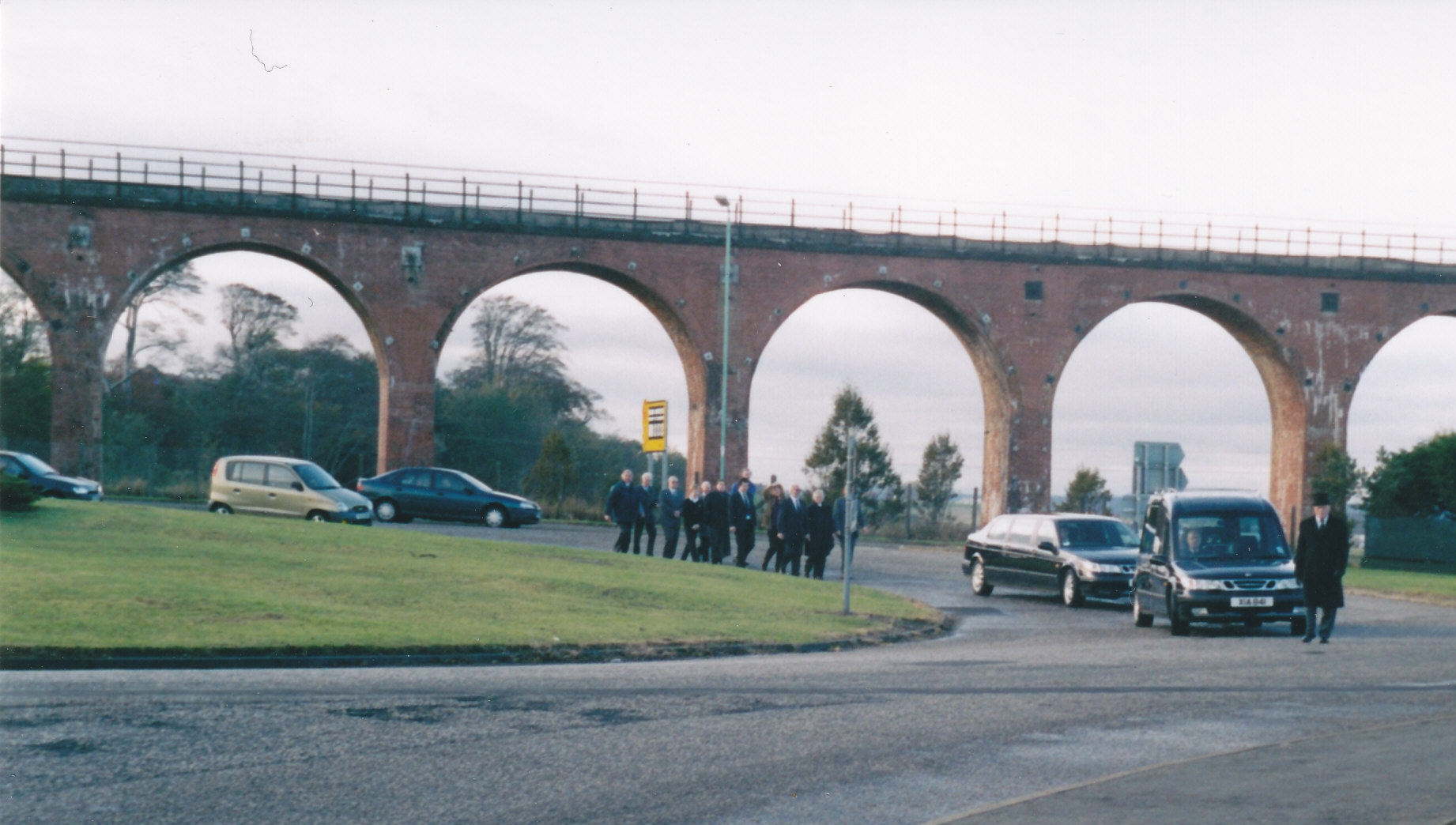Working for a living
When David left school in 1922 aged 14, like so many Ferryden men and women before and after, began his working life in Paton`s Mill. He worked with ‘Stoorie Jock’ for several years and hated every minute of the airless oppressive atmosphere, and took every chance to run across the links to the beach especially during lifeboat call-outs. So, when round about 1925, David was offered a place in the Charlton salmon coble, he jumped at it.
The outdoor life and bothy companionship suited him ‘doon to the grund’. He loved the banter and the work and the crews rotated between the bothies at Charlton, Usan and the Boddin. Tatties and meal were supplied and coal for the open fire. Jock Watt was in charge of the coble at the Charlton and David recalled an occasion when a persistent strong westerly wind had prevented the crew from fishing the flies for several days. The combination of strong wind and spring tides produced a deal of steep broken water round the flies making it dangerous to risk the boat for fishing and Jock Watt was desperately checking the weather every hour, seeking an opportunity to launch the boat.
After one such reccie, Jock put his head round the bothy door saying ‘I think the weather’s eased a bittie. We’ll gi the nesty bist a trial.’ The crew got boated up and David says to Jock, ‘Hae ye ever been to Norway Jock?’ ‘No’ says Jock, ‘Weel’ says David ‘if it keeps comin like this, we’ll be there afore tea-time!’
In the event they failed to fish the flies, couped the coble in the surf on the way back in and were lucky to escape without loss of life.
The salmon fishing was principally seasonal, and during the close season, fishermen were obliged to seek work wherever it could be found, but mainly on the land. So, David was regularly employed dressing tatties. The photograph on the next page was taken by an itinerant photographer.
As with salmon fishing, the outdoor life was well suited to David and he maintained his links with local farmers to very nearly the end of his days. David was a regular walker, covering on average 25 miles a week on the roads round Duninald, Usan, the Boddin and of course Scurdy Ness. On his travels,he was never without ‘a buggie’ - that is a plastic carrier bag, to carry home the gifts of a ‘boilin o` tatties’, the odd neep, generously given by farmers John Reid and John Ogilvie or a ‘fry o` fish’ from local fishermen Ian Montgomerie and Donald Cameron.
We once calculated how far David had walked in the thirty odd years since he retired in 1971. On being told he had walked at least twice round the world, with his familiar twinkle, he remarked ‘That canna be richt! Or else I must hae missed oot Egypt! I’ll need tae start again!’
Sometime around the mid 1930`s David left the salmon fishing and the rather uncertain seasonal employment of farm labouring for a job on the railway. The visit to Edinburgh for his medical was the furthest David had ever been away from the village. Exempt from call-up when the 2nd World War broke out, David walked the lines between Montrose, Arbroath, St Vigeans and Forfar for the next 30 years.
As before, this was bothy life again, this time with principally a Dundee based gang, although the gang that David particularly recalled with relish, was led by a Montrose man called Jock Duncan. Jock`s main claim to fame as far as David was concerned, was that he kept pigs, and often in the bothy, Jock would produce a leg of his own home-cured pork which was sliced off the bone and fried with tinned pears (!) ‘What could be better nor that’ recalled David, ‘sittin at the fire wi a plate o’ tatties and hame cured bacon wi the grease runnin’ doon yer chin’.
Although David was already in his 70`s when our paths crossed in 1981, his ready wit and bright intelligence left us in no doubt that in other circumstances, David`s life could have been entirely different. He never lost his thirst for knowledge and sought out the scientific and documentary T.V. programmes, scorning the mind sapping soaps etc. as a ‘great weist o’ time’.
So why would a strong, healthy, hardworking intelligent man not have married? It would be surprising if David had not had his share of romance in his life, but one encounter left him bitter and disillusioned.
Whilst working on the railway at Johnshaven, David met Mug Soutar and they began a courtship. However, one day at the station in Montrose, David saw Mug on the northbound platform talking to an airman and was left in no doubt that she was not as committed as he. David never did give anyone a second chance and never spoke to Mug again. The photograph on page 18 may or may not be Mug, but it was secreted in a small frame behind a picture of David`s parents, so it might not be too fanciful to speculate.






